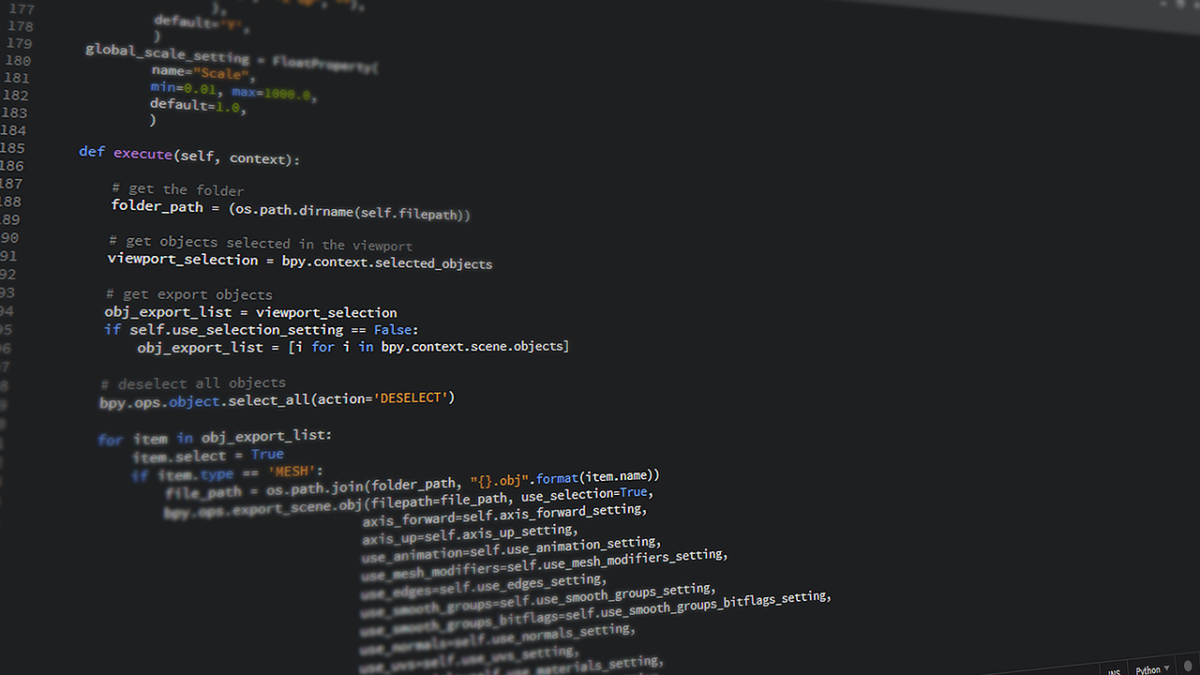Python has become extremely popular, especially in the last two to three years. It’s no surprise that many people wonder if they should give Python a shot. Python is highly suitable for beginners because it’s easy and quick to pick up. If you already have some programming experience, you’ll find Python very accessible.
What do you need to know before getting started?
Learning to code is super fun, and you’ll find that you can make great strides if you don’t give up at the first hurdle. Google is your friend here! It’s perfectly normal to encounter many errors at the beginning; all developers started this way. The syntax of a programming language is basically the set of rules you need to follow when writing instructions.. Getting used to the syntax of a language always takes some time. Once you understand the basics, you’ll pick up another language fairly quickly. Now, Python’s syntax is different from many other languages. In a way, it’s simpler and looks much lighter.
So, even if you’re familiar with other languages, Python’s syntax may take some getting used to. There are fewer parentheses, more colons, and correct indentation is now a strict requirement. Your code won’t work if you don’t do that correctly. Python determines which pieces of code belong together based on how far they’re indented.
Setting up Python Environment
Your computer needs to understand the Python language, so you’ll need to download Python. You can do this here: https://www.python.org/downloads/
Python comes with IDLE, a decent program for writing your first Python modules. As you get more serious about coding, you’ll want a different editor. Editors for writing code are called IDEs (Integrated Development Environments). There are many good IDEs for Python. We recommend PyCharm. PyCharm is an IDE specifically designed for Python. Other editors that are very popular and also support Python are Atom and Visual Studio Code. You can download these from their websites. Once you’ve installed your IDE, you’re good to go!
How to approach it?
Everyone learns differently. While some prefer learning from a book, others prefer following a video tutorial, and yet others prefer taking a course. However, one thing is inevitable: you have to start doing it. To become skilled with Python, you’ll need to put in the hours. If you’ve never coded before, try starting with some simple exercises. If you’ve got a bit more programming experience, you might want to take on a real project with Python.



